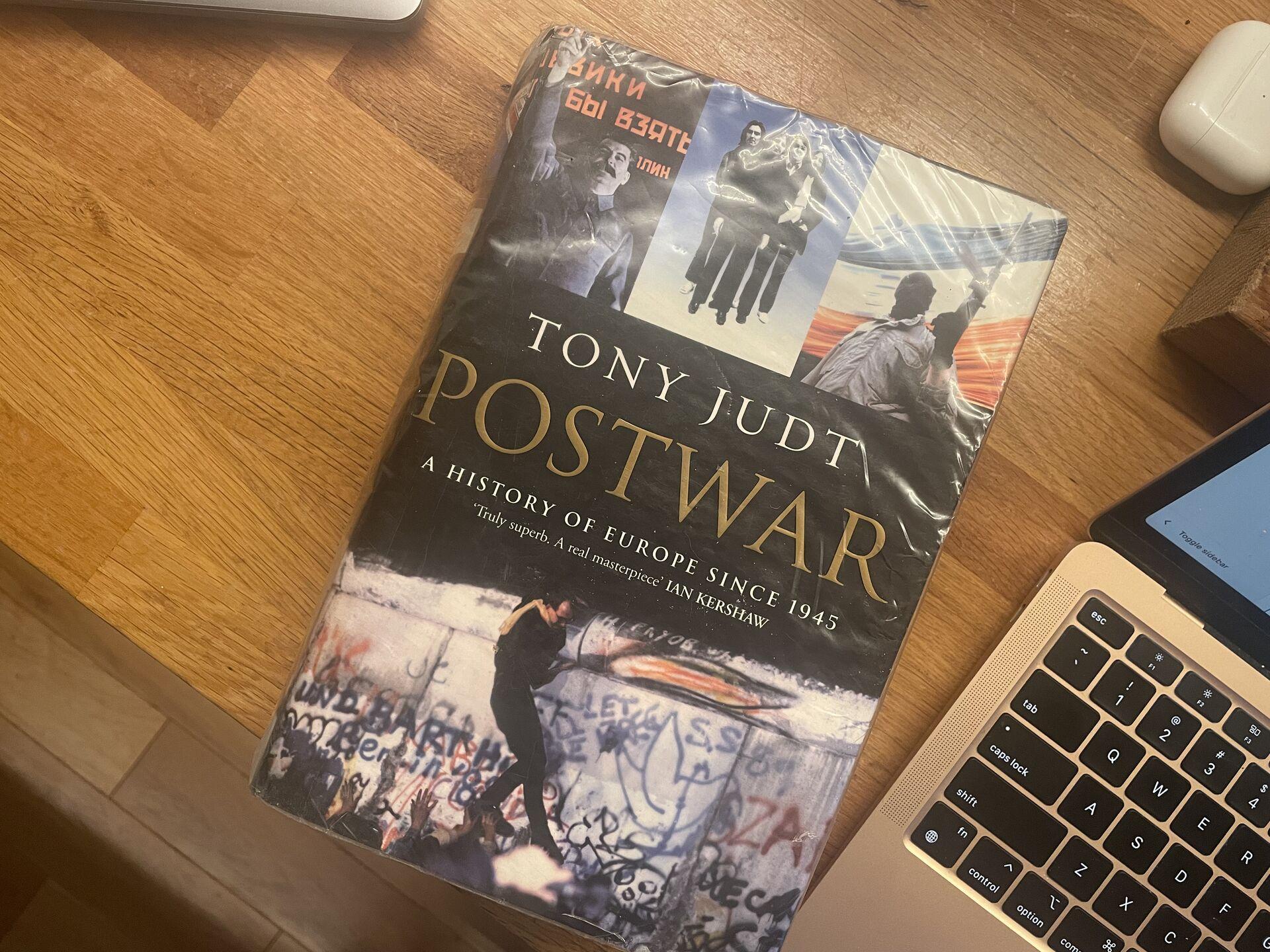Postwar
by Tony Judt
Published 2005 878 pages
You know, for a nearly 900-page book covering the history of Europe from 1945 to the new millennium (or thereabouts), Postwar is a remarkably easy read. A long read, for sure — but an eminently manageable one. If anything, its straightforward telling-of-events narrative very nearly spoils it; Judt leaves it a little bit too much up to the reader to connect the dots.
Maybe I'm just a idiot. Maybe the average reader of a 900-page history of a continent should be up to the task of finding the common thread that weaves that history together.
Luckily Judt puts it right at the end of the book:
All the same, the rigorous investigation and interrogation of Europe's competing pasts—and the place occupied by those pasts in Europeans' collective sense of themselves—has been one of the unsung achievements and sources of European unity in recent decades. It is, however, an achievement that will surely lapse unless ceaselessly renewed. Europe's barbarous recent history, the dark 'other' against which post-war Europe was laboriously constructed, is already beyond recall for young Europeans. Within a generation the memorials and museums will be gathering dust—visited, like the battlefields of the Western Front today, only by aficionados and relatives.
If in years to come we are to remember why it seemed so important to build a certain sort of Europea out of the crematoria of Auschwitz, only history can help us. The new Europe, bound together by the signs and symbols of its terrible past, is a remarkable accomplishment; but it remains forever mortgaged to that past.
Next
Andor is good television. I actually looked forward to watching another episode each night. And perhaps the highest praise of all: it made Sam care about a Star War.
Previous
Bob Graham Round, leg 4 clockwise
Out in the Lake District on a fine bank holiday Saturday for a recce across the to-me-hitherto-unexplored Western Fells.